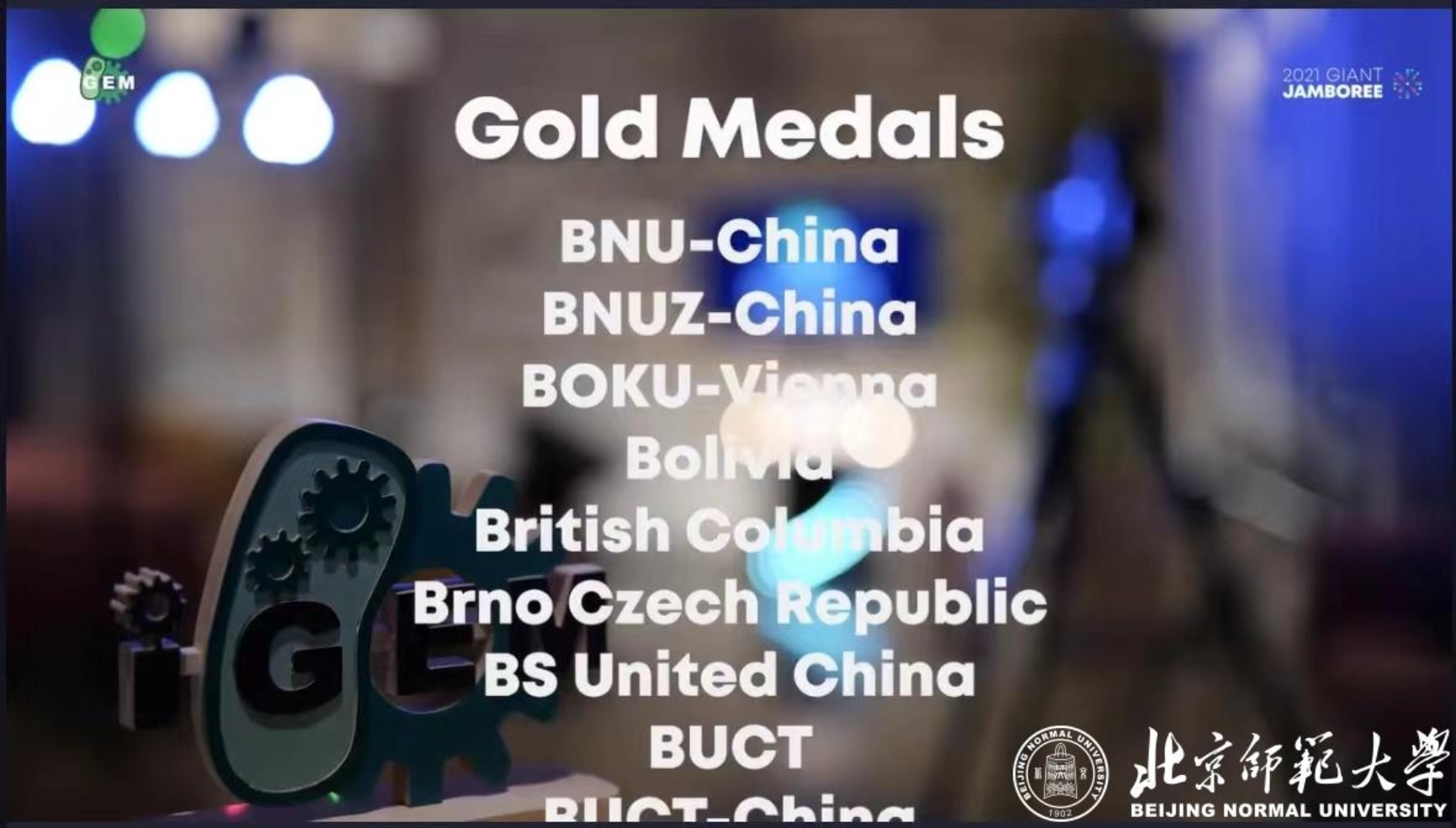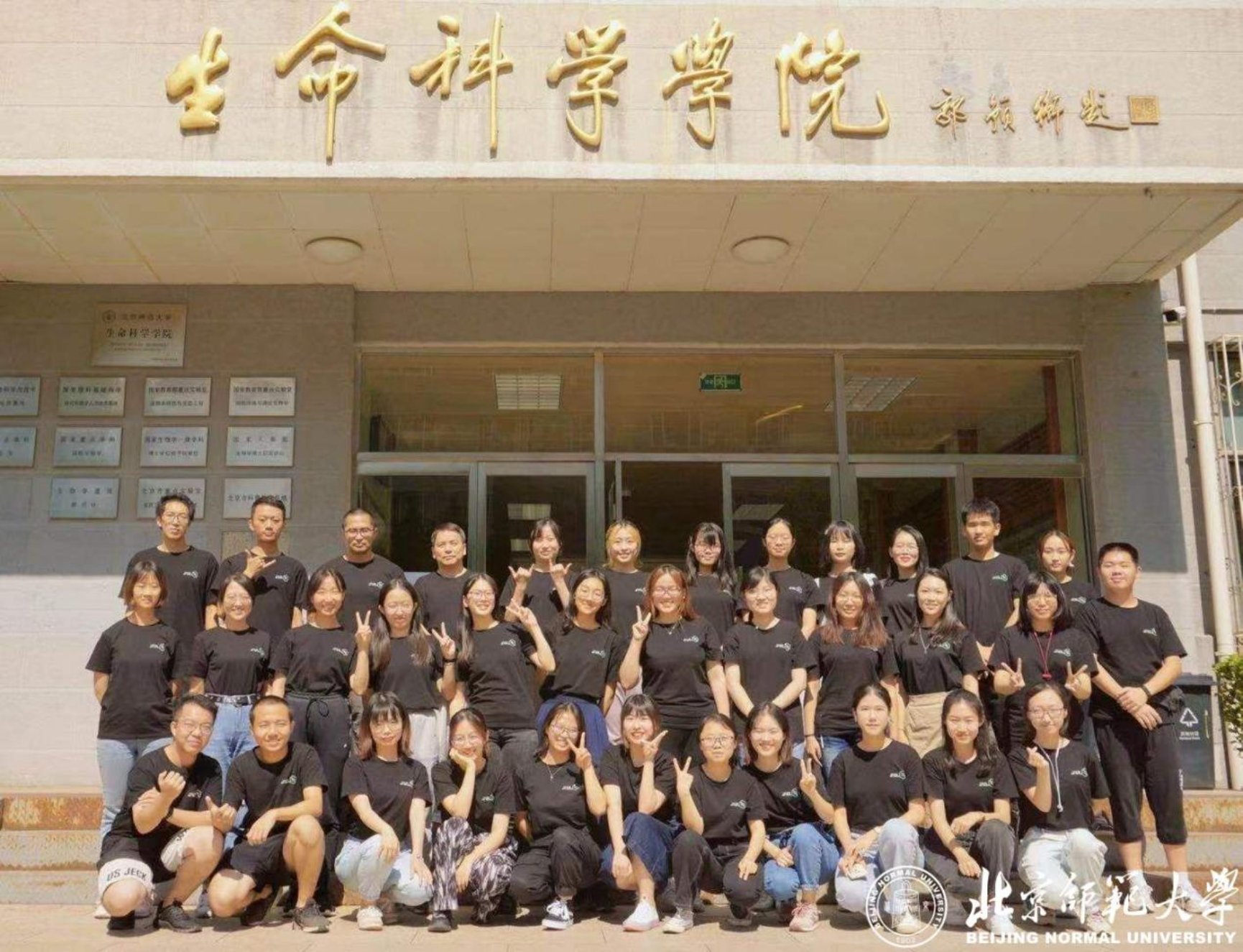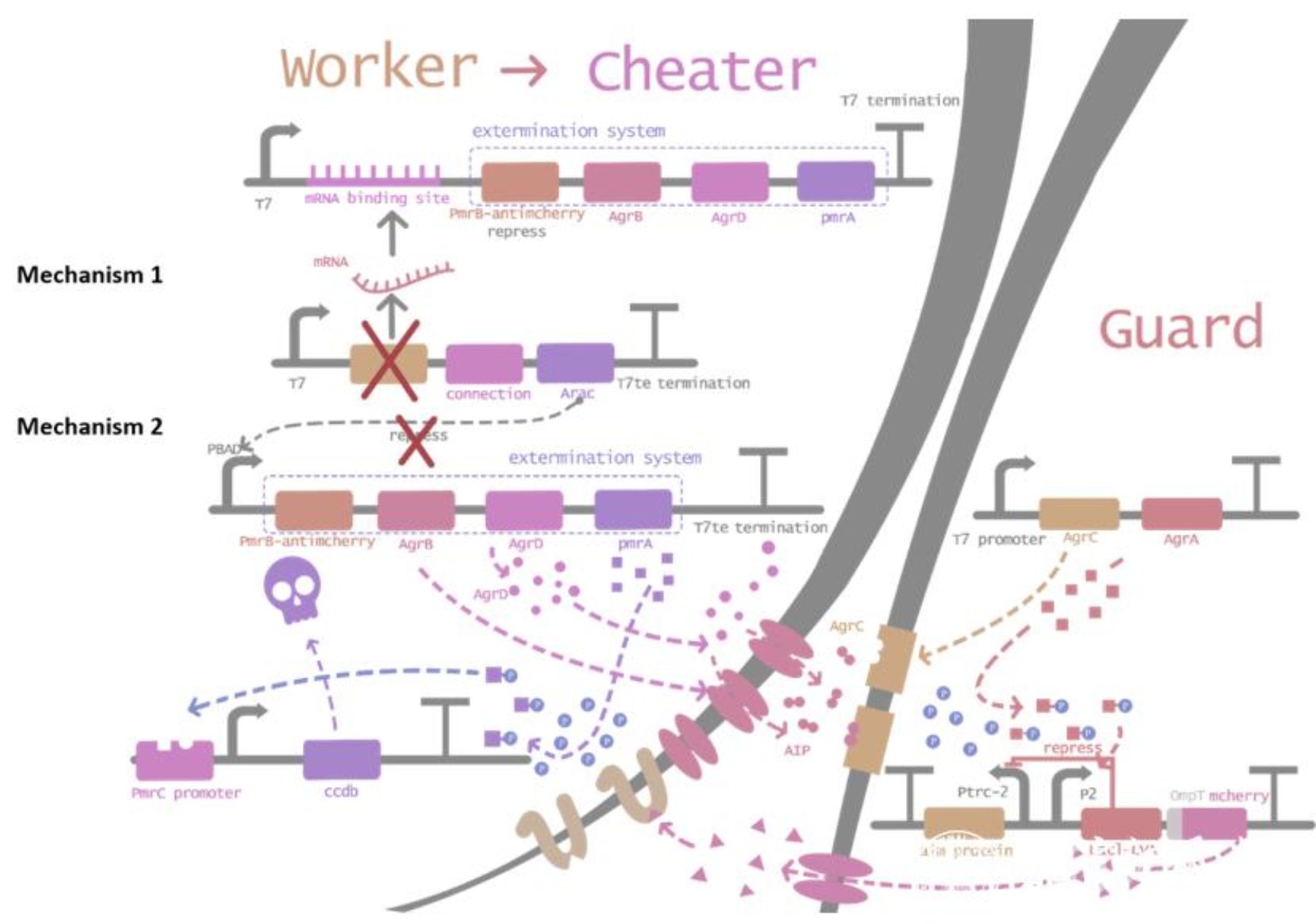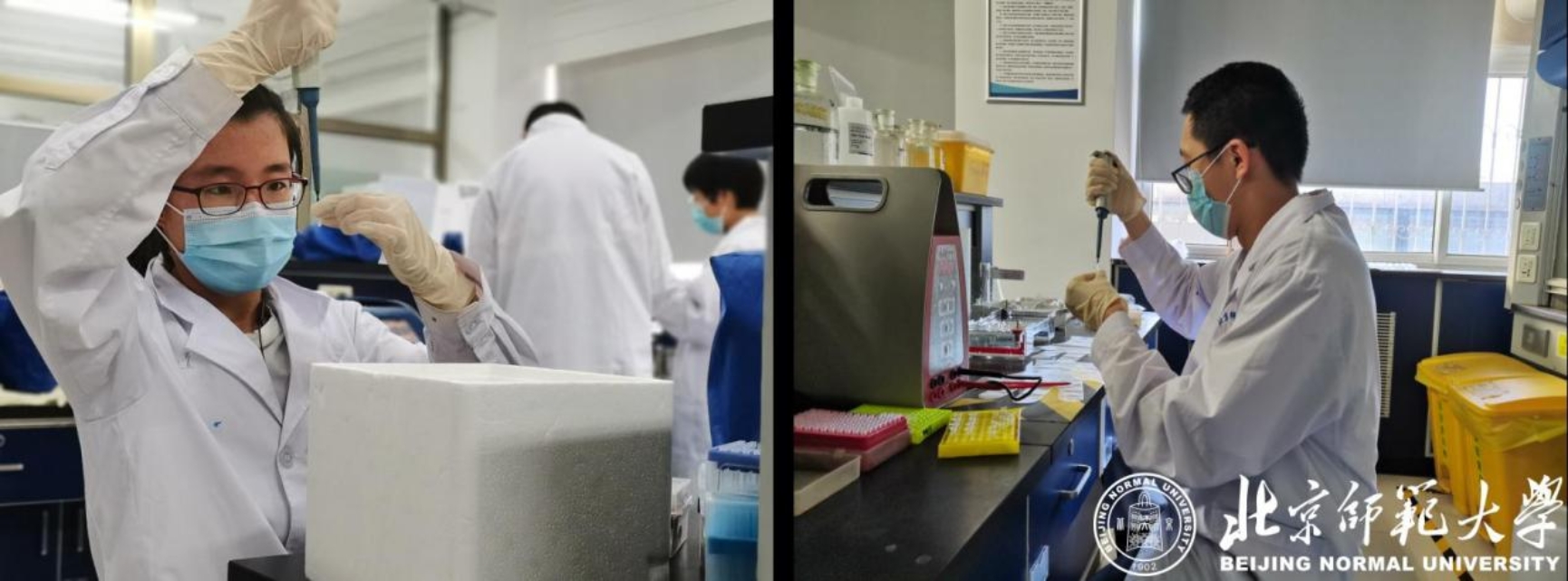BNU-China won another iGEM gold medal
The International Genetically Engineered Machine Competition (iGEM) concluded at 16:00 on November 14 (UTC). Team BNU-China won another gold medal and was nominated for the Best Inclusivity Award. This is the third consecutive year that BNU-China has won a gold medal, the fifth in eight years since the team was established, and the second nomination for a single award. In addition, the College of Life Sciences of BNU Zhuhai set up the team BNUZ-China this year, which won its first gold medal due to the fine interactions between teachers and students, and between Beijing and Zhuhai campuses.



BNU-China 2021
iGEM is a top-notch international academic competition in the field of synthetic biology, launched by Massachusetts Institute of Technology in 2003. It is an international competition focusing on synthetic biology, combining life sciences, mathematics, engineering, information science, art design and other subjects, which has attracted wide attention and special coverage from academic journals such as Nature, Science, Scientific American, Economists, and media like BBC. iGEM encourages outstanding students around the world to innovate, address social concerns and solve cutting-edge issues through synthetic biology, while striving to create an international community of synthetic biology that will provide a platform for future elites to communicate and present ideas. This year, iGEM attracted 352 teams from around the world, including Harvard University, MIT and other top-class universities.
BNU-China started to participate iGEM in 2014, and has achieved five golds, two silvers and one bronze in the eight years. In 2021,the team members are from the College of Life Sciences, the School of Artificial Intelligence, the School of Mathematical Sciences, the School of Arts & Communication, the Faculty of Education, the Department of Physics, the College of Chemistry, and the School of Philosophy.

2021 BNU-China Team Emblem
This year, the BNU-China project Cheat Me If You Can focused on the problem in industrial production that genetically modified bacterial strains would have a genetic mutation that prevents the normal synthesis of the target protein. To solve this problem, BNU-China has developed a common industry platform for protein production, which was inspired by models of natural bacteria. In this platform, a strain called Guard can specifically kill the mutated strain Cheater to maintain the stability of the productive strain Worker. The platform can not only reduce the huge loss of product quality and quantity caused by mutant strains, but also has a wide range of applications in strain screening, directional evolution, biomedicine, etc.


BNU-China’s general design of the gene pathway
This project used E. coli as the chassis organism to build the Guard strain and the Worker strain respectively. After two strains were put into the fermentation tank, once the Worker cell was unable to synthesize the product, i.e. it mutated into the Cheater, the cell would secrete a signal molecule that could induce the Guard to produce specific lethal substances and precisely eliminate the Cheater. In order to further study and improve the efficiency of the platform, BNU-China constructed a population growth model and a kill model, and determined the optimal Guard delivery according to the mutation probability of different strains of Worker. Finally, BNU-China demonstrated their innovative work clearly and perfectly through Wiki webpages and video presentations.

Experimental operation

Some of the experimental results
Through all stages of brainstorming, project design, and future application, BNU-China actively built relationships with the society, consulted experts and visited plants in related fields (e.g., Kexing, Yakult factory, etc.) to further refine the project through their feedback and advice.
At the same time, the team actively promoted synthetic biology education for the general public. They designed different educational methods and popular science materials for different people in seven main aspects, i.e. family education, school education, community education, regional education, social education, special education and in-depth education. They established a multi-level, all-round continuous interactive education system, hoping to break down barriers so that more people can understand and enter the field of synthetic biology. The nomination for the Best Inclusivity Award was a recognition of BNU-China's efforts to promote synthetic biology education.
In more than 8 months, BNU-China completed documentation research, program design, expert consultation, carrier construction, gene expression, mathematical modeling, functional verification, webpage establishment, project presentation, and education promotion, under the guidance of professors from the College of Life Sciences, and strived to promote synthetic biology to a wider audience. At the same time, BNU-China well expounded their innovative work through webpages and video presentations, and was complimented by the judges. Finally, they won a single award and another gold medal this year.


